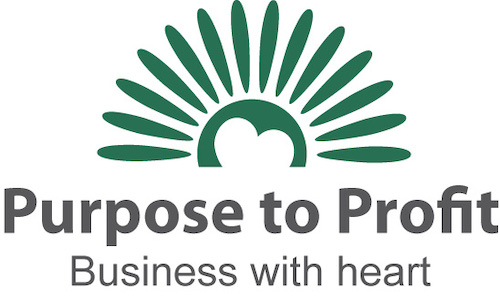What an exciting and uncertain world we live in, particularly if we’re creative, entrepreneurial and we’ve taken the plunge to do our own thing.
We start businesses for so many reasons: to create a lifestyle; to prove to the world we can do it; to have more control over our work environment; to make heaps of money; to make a positive difference; to create a business culture that sits more comfortably with who we are. The list is extensive.
One thing we all have in common when we set out on our own, is we may not realise it’s such a personal journey.
We no longer stand safely behind a company brand, draw on the company resources, serve the company clients with the company products and utilise the company systems and processes.
We are the business. The products and services are our ideas. We are front and centre, responsible for everything and for every outcome.
Mindset is all-important. It’s responsible for around 80% of the success of any endeavour. And nowhere is its importance more obvious than when we have to put our product or service out onto the market for others to see, gauge and potentially buy.
If we embrace uncertainty, tolerate ambiguity, let go of perfection to launch a minimum viable product, handle the feedback and the lag time between launch and market acceptance, we’ll be fine.
If on the other hand, we start second-guessing ourselves when the market is slow on the uptake, and we lose connection with our Purpose, it’s going to be a rough ride. The Imposter Syndrome – which is triggered by personal uncertainty – will make sure of it.
Symptoms of the Imposter Syndrome are the opposite of the qualities successful entrepreneurs share in common.
Self-doubt instead of confidence. Second-guessing decisions rather than acting decisively. Reliance on the opinions of others rather than believing in ourselves, our Purpose and Vision.. Unconsciously seeking to control and reduce vulnerability rather than being flexible, agile and opportunistic. Not wanting to share our ideas until they’re perfect rather than opening up to the input of others to help create a better product or message. Fearing and avoiding failure as an indicator of personal worth instead of de-personalising it and recognising it as an essential step towards success. Procrastinating and self-sabotaging our efforts instead of facing fear, digging deep to find courage and moving forward.
In the face of the Imposter Syndrome, we can lose touch with the Purpose and positive difference we were fired up to make.
Does it sound like I speak from personal experience?
I certainly do.
I made the classic entrepreneurial mistake of launching my business at the bleeding edge, meaning the market was no-where near ready for it. I call it my time in the desert, sharing the why, what and how of the Imposter Syndrome when the market saw it as intrusive, confrontational and personal, with no place in the business environment.
I know what it cost me personally, professionally, financially to take that 13 year journey.
It gave me so much more than it cost. I rediscovered me and my own value. I began trusting myself and my Purpose. I felt so much more connected with others and with life. It started to feel like fun. And the business started flowing.
What were the steps that opened up my possibilities?
- Reclaim yourself. Identify your strengths and their value, together with successes you’ve been involved with and your role in them. In order to truly get what your Purpose and positive impact can be, you need to recognise your own worth. Before you can offer your value to others, you first need to know what you’re bringing to the table.
- Let go of Perfection. There is no such thing. Our need to be perfect comes from childhood and doing whatever we felt we needed to in order to have our basic survival needs met. We thought if we were perfect, we’d be loveable. Perfection is an ideal we can’t even describe. Instead of appreciating our progress, we focus on the gap between where we are and this idealistic notion of worth and value. In the process, we reinforce the feeling of not being good enough. Embrace excellence instead.
- Find and articulate your Purpose. What inspires you and lights you up on the inside? There are lots of different ideas about what Purpose is. For me, Purpose is the service I can give to others. It’s so much more than a statement though. It’s about the emotional connection I feel when I think of the Purpose. My business Purpose is to help create businesses with more heart and soul so they can change the world. That gets me out of bed in the morning, excited. It also opens up my heart to hear from others what I could do differently to bring this Purpose alive. Emotional connection and the hairs on your arms are the key.
- Let go of Comparisons. I have no idea what’s truly going on for someone else. I used to compare my 3 am doubts with their confident presence and think I wasn’t doing so well. They were successful and I wasn’t. We all have our own journey and comparisons are not always useful or founded in fact. If others seem further ahead than you are, celebrate their success and know it means it’s possible for you too.
- Build resilience. I’m sure you know that we get more of what we focus on. Your thoughts build momentum and may take you places you don’t want to go. Instead of allowing your negative thoughts to carry you away, focus instead on what you have to be grateful for. In first world countries, there are always things to be immensely grateful for. Food, water, shelter, relative health, a beautiful country to live in, freedom, the list goes on. I’m sure you can find so many things to be grateful for if you just focus on that. Gratitude journalling sounds so simplistic. It truly made a difference for me, opening up my heart, putting a smile on my face, helping me be more generous with others.
- Find the Silver Lining. Also part of resilience. Every negative has a positive. Every challenging situation has an uplifting opposite if you can focus on it. Someone might lose their job and secure a better opportunity. A business partnership could fall through only to realise it would have broken the business to go ahead. Rain means we can wear lovely raincoats. You get the drift. It may take a little time to be able to look at a situation to recognise the positive that comes from it. Definitely worth the wait and the conscious practice.
- Balance your frame of reference. Develop a balance between knowing something for yourself and checking with others for their input. Known as an internal frame of reference or an external frame of reference, both are essential. You need internal certainty to avoid bobbing like a cork on the ocean of opinion, subject to the anxiety that uncertainty can bring. And you need external check-ins to ensure you aren’t producing a product or service nobody wants or wants in that form.
These are just the beginning of the journey and each one of these steps made a significant difference to my experience of life and of myself. They’ve certainly made a difference to the way I run my business, and would have changed my experience of the corporate world, had I known then …
Wishing you every success.


